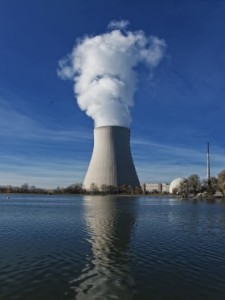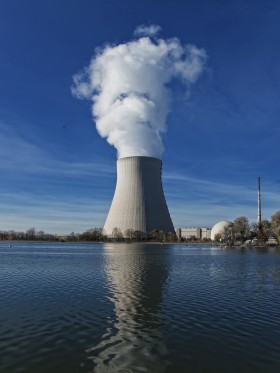
U.S Government Wants to Jump-Start Next-Generation Nuclear Reactors
U.S Government Wants to Jump-Start Next-Generation Nuclear Reactors
The Department of Energy’s $82 million in funding is a small step in commercializing advanced reactors, and much more is needed.
Attempting to jump-start technology that could provide abundant, zero-carbon energy, the Department of Energy just announced $82 million in funding for advanced nuclear reactor research and development. A total of 93 projects will receive funding “that will help push innovative nuclear technologies toward commercialization and into the market,” the Department said in a statement.
It’s not a ton of money, considering that developing new reactor technology will cost billions. But it’s the most tangible sign yet of U.S. support for advanced nuclear technology being developed on American soil. About $7 million in funding and technical assistance will come under the Gateway for Accelerated Innovation in Nuclear initiative, which is designed to streamline the process for private companies to win approval from the Nuclear Regulatory Commission for new reactors. The lengthy and expensive NRC licensing process has caused several new nuclear start-ups to look overseas to license and build their reactors. The companies receiving GAIN awards include GE Hitachi, Westinghouse, Terrestrial Energy USA, and Transatomic Power Corporation. Terrestrial Energy has also received a grant from the Canadian government to build a prototype of its integral molten salt reactor.
Nearly half the money will go to universities to fund basic research on the challenges around developing new nuclear technology, including materials science, nuclear waste disposal, advanced manufacturing techniques, and fuel fabrication.

This week’s announcement is important, but it’s not nearly enough to bring new nuclear plants online in time to limit climate change. The International Energy Agency says that global nuclear capacity needs to more than double, to 930 gigawatts, by mid-century in order to play a significant role in limiting global warming.
While countries such as China and India have embarked on major nuclear plant construction programs, most new plants are based on conventional technology that was developed in the 1970s. Such plants have long been plagued with cost overruns, public opposition, and safety concerns. A new generation of nuclear reactors could address those problems. This week’s funding marks a small first step in developing and commercializing those reactors.
(Read more: “White House Strikes a Blow for Advanced Nuclear Reactors”)

Leave a Reply